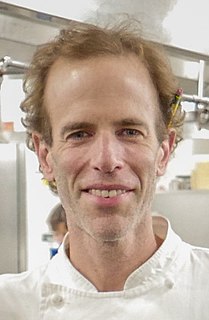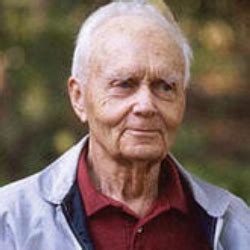A Quote by Ernst Haeckel
By ecology we understand the total science of the connections of the organism to the surrounding external world.
Quote Topics
Related Quotes
Our time has been distinguished, more than by anything else, by a mastery, a control, of the external world, and by an almost total forgetfulness of the internal world. If one estimates human evolution from the point of view of knowledge of the external world, then we are in many respects progressing. If our estimate is from the point of view of the internal world, and of oneness of internal and external, then the judgment must be very different.
Early ecologists soon realised that, since humans are organisms, ecology should include the study of the relationship between humans and the rest of the biosphere. ... We don't often tend to think about the social sciences (history, economics and politics) as subcategories of ecology. But since people are organisms, it is apparent that we must first understand the principles of ecology if we are to make sense of the events in the human world.
In the scale of life there is a gradual decline in physical variability, as the organism has gathered into itself resources for meeting the exigencies of changing external conditions; and that while in the mindless and motionless plant these resources are at a minimum, their maximum is reached in the mind of man, which, at length, rises to a level with the total order and powers of nature, and in its scientific comprehension of nature is a summary, an epitome of the world.
I would teach the world that science is the best way to understand the world and that for any set of observations, there is only one correct explanation. Also, science is value-free, as it explains the world as it is. Ethical issues arise only when science is applied to technology - from medicine to industry.
All children want to do is play in worlds they create and project on their external world. If allowed to do that, they are constantly building new neural structures for creating internal worlds and projecting them on their external world. And they build up an enormous self-esteem and feeling of power over the external world through their own capacities.
The partisanship surrounding space exploration and the retrenching of U.S. space policy are part of a more general trend: the decline of science in the United States. As its interest in science wanes, the country loses ground to the rest of the industrialized world in every measure of technological proficiency.
Restoration ecology is experimental science, a science of love and altruism. In its attempts to reverse the processes of ecosystem degradation it runs exactly counter to the market system, to land speculation, to the whole cultural attitude of regarding the Earth as commodity rather than community. It is a soft-souled science.
I've worked with farmers in Zimbabwe who've lost their lands. I've worked with people in Venezuela, under threat of kidnappings, whose external world is unstable. But they have very strong social connections with their family and friends. And as a result, they're able to maintain a greater level of happiness and optimism than I've seen from bankers, consultants, or salespeople who are on the road all the time, who follow jobs separated from their families, and, as a result, find themselves missing out on the happiness that comes from those very connections that they severed.



































